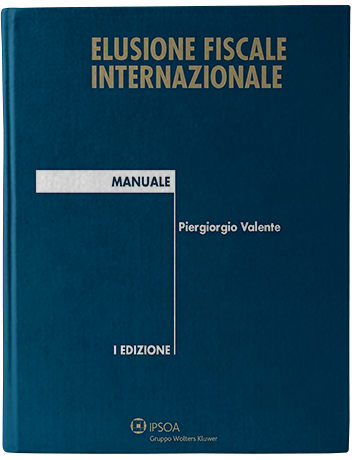PIERGIORGIO VALENTE
Elusione Fiscale Internazionale
Pianificazione fiscale e perseguimento di un risultato vantaggioso dal punto di vista tributario non rappresentano di per sé attività illecite. Si rende tuttavia necessario identificare i confini tra ciò che può essere considerato un legittimo risparmio di imposta e ciò che deve rientrare nel concetto di “elusione fiscale” (da ritenere patologico e, pertanto, da contrastare).
Negli ultimi anni, inoltre, è fonte di particolare preoccupazione per gli Stati il fenomeno dell’erosione della base imponibile per effetto del trasferimento artificioso dei profitti (cd. BEPS) verso giurisdizioni a fiscalità favorevole.
Il dibattito, di rilevante attualità a livello internazionale, ha l’obiettivo di individuare efficaci misure di contrasto con riferimento a tutti i settori interessati, a tutela degli interessi erariali degli Stati a fiscalità avanzata.
“All benchmarks are likely, or at least they are so, theoretically speaking. All benchmarks that are likely in theory are theoretically applicable in practice. However, not all benchmarks that are theoretically applicable in practice are actually applicable to all concrete cases. What’s more: some benchmarks that are theoretically applicable in practice may be practically unlikely and may result as being actually inapplicable (in some given concrete cases). It is up to the interpreter to be able to discern between benchmarks that are likely from the ones that are not, evaluate whether the ones that are likely are possible, assess whether the ones that are possible are likely (in specific concrete cases). The debate between the Tax Authorities and Taxpayers has the purpose of establishing a level of evident likelihood or a just as evident unlikelihood of the benchmark. Balance and critical judgment support the ability to discern between what is an acceptable likelihood from an unacceptable unlikelihood. The crux of the problem lies precisely in such antithetical interests that exist between the Tax Authorities and Taxpayers to the point that the unlikely becomes possible and the impossible becomes likely. Be it likely or unlikely as it may. And to raise – with an ever-increasing likelihood – that which is unlikely to (the heights of) that which is possible.”
Piergiorgio Valente
In International Tax Avoidance (p. 1227)
“Abuse of law is the combination of avoidance of abuse (from taxpayer’s side) and of abuse of avoidance (from the Revenue Office’s side). This is the Revenue Office’s means to challenge taxpayer’s end and taxpayer’s means to thwart the Revenue Office’s ends. What is – however – not acceptable is that the ends justify the means and the means justify the ends. Hence, for a system to be equitable, the balance – whether of means or ends – lies somewhere in the middle with regard to both. And this is its true purpose for both, ends and
means.”
Piergiorgio Valente
In International Tax Avoidance (p. 8-9)
QUOTES
International Tax Avoidance
“Avoidance behaviors generally entail and have the purpose of selecting instruments and legal institutions that allow a considerable reduction of the tax burden …”
“It should be pointed out that pursuing a tax saving should not – in any way – be assimilated to tax avoidance …”
“The market, meant as a place for exchange, becomes a “real and proper legal system” …”
“The transnational regulation of economic relations and the centralization of decisional powers are fundamental aspects of the political process of globalization …”
“Law abuse has always been – and still is – of interest to law in general …”
“EC jurisprudence restates the existence of a general principle prohibiting abusive practices ever since 1974 …”
“The Tax Authorities are therefore required to adopt a most prudential approach …”
“Tax system does not intend to reward entrepreneurial choices that are not determined by a substantial economic evaluation …”
“The selling enterprise might prefer a transfer operation, while the purchaser might find it more convenient to separately buy single assets …”
“In order for avoidance not to occur, extraordinary operations should have a real and substantial economic motivation …”
“Tax avoidance is the “regulated” expression of the principle of law abuse, a (legal) “species” of the “genus” “immanent” in the tax system …”
Piergiorgio Valente
QUOTES


